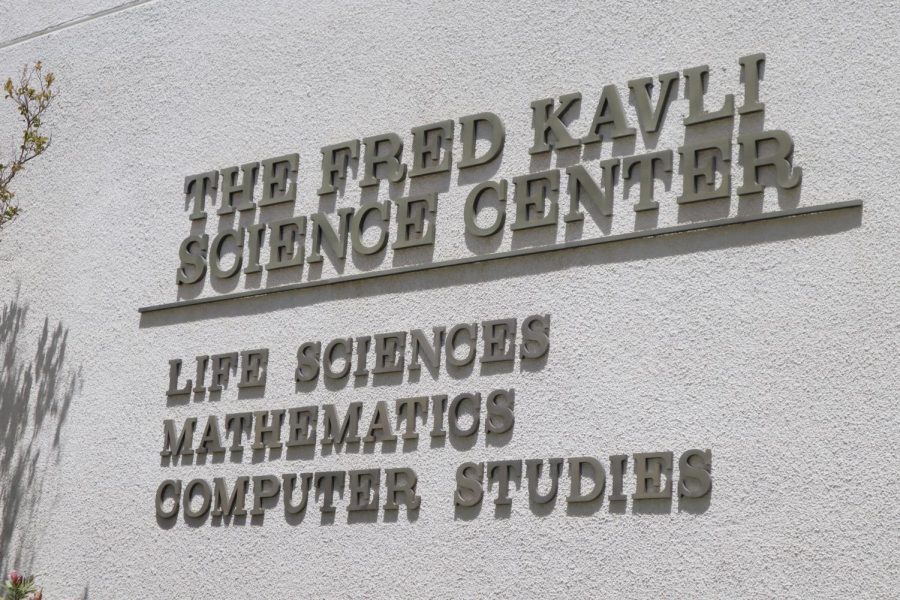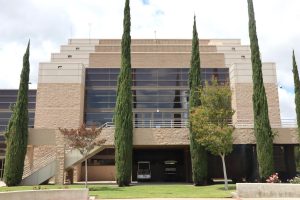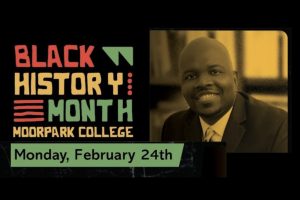Moorpark College awaits approval to develop a bachelor’s degree in biomanufacturing
The Fred Kavli Science Center on May 10, 2022. The center consists of multiple departments at Moorpark College, including Life Sciences. Photo credit: Shahbano Raza
May 14, 2022
The offering of bachelor’s degrees at community colleges might soon become the new normal. While some community colleges already offer bachelor’s degrees, more community colleges are likely to follow suit thanks to recent developments in education legislation.
In January, Moorpark College submitted a proposal to develop a bachelor’s degree program in biomanufacturing. This proposal became a possibility after California Governor Gavin Newsom signed Assembly Bill-927 into law in October of 2021.
AB-927
AB-927 allows community colleges to offer bachelor’s degrees. The bill allows for up to 15 bachelor’s degree proposals from California Community Colleges to be approved biannually.
Not just any discipline gets to become a four-year degree at a community college. The non-duplication stipulation of the bill prohibits community colleges from developing bachelor’s degrees in majors that exist in the UC and CSU systems.
Additionally, the college needs to demonstrate that there is a legitimate workforce need for the program at hand and that the college is capable of offering the program with its faculty and resources.
If in its application, Moorpark College demonstrated the need for the four-year degree and the ability to successfully implement it, it is likely that its proposal will be accepted. The college will find out by May 31 if its dream of offering a four-year degree in biomanufacturing will come to fruition.
The submission process for the proposal
Biology professor Subhash Karkare was at the forefront of Moorpark College’s biomanufacturing proposal submission process. Karkare was in charge of developing the curriculum and collecting data that depicts the need for and capabilities of the program.
The time frame for submitting the proposal was remarkably small. Karkare explained that the college received the knowledge of the steps that needed to be taken in mid-December, leaving the college with less than a month to get the proposal submitted before the Jan. 15 deadline.
Deborah Klein, the director of institutional advancement and community relations, emphasized that the process of submitting this proposal involved numerous individuals.
“The development and submission of the biomanufacturing proposal truly required the efforts of all,” Klein said. “The faculty, staff, community and students all leaned in to make this happen.”
Karkare mentioned that even the English department pitched in to make the submission possible. Not only did they assist in developing the upper-division courses for the program, but they also edited the overall application.
“Sydney Sims, our English professor, she actually looked through the application from a grammar and syntax point of view and style, so she helped as well,” Karkare explained.
Local elected officials, industry leaders, universities and fellow community colleges also contributed to the proposal process, according to Karkare and Klein.
The need for a B.S. in Biomanufacturing
Karkare explained that biomanufacturing is essentially an extension of biotechnology. Biotechnology involves the manipulation of genes and cells through genetic engineering.
“Biomanufacturing is the way we manufacture these genetically engineered proteins and cells at a large scale,” Karkare said.
There looks to be a notable need in the Moorpark College community for a four-year degree in biomanufacturing. AB-927 mandates that bachelor’s programs submitted for consideration must align with employment needs in the college’s area.
The bill states that the workforce need can be demonstrated by showing that employers are struggling to fill positions that require baccalaureate degrees.
Karkare used data from Biocom California to quantify the workforce need for life science employees, particularly in Ventura County.
Biocom California is an advocacy group for the life science industry in California. In their 2021 California Economic Impact Report, Biocom found that 2020 was a strong year for the life science sector in California.
Due to the COVID-19 pandemic, the demand for biomanufacturing employees became even more pressing.
“With biotech and pharma leading the pandemic response, the Life Science industry quickly developed diagnostics, therapeutics and vaccines, served as a stabilizing economic force [and] retained its role as a major source of innovation,” Biocom said.
Due to the life science sector’s role in directly handling the pandemic, job opportunities in its various fields opened up, while other sectors saw a decline in employment.
Biocom reported, “While California’s total employment dropped by 7.4% in 2020, Life Sciences registered a 0.5% job gain.”
The overall growth of the life science sector and the subsequent increase in employment opportunities highlight the need for affordable higher education to supply qualified candidates that will fill employment gaps in fields like biomanufacturing that were and are directly responsible for combating the pandemic.
In Ventura County, the benefits of supplying students with an affordable biomanufacturing program are defined by the booming clusters of biotechnology and life science companies in the area.
“Considering all ripple and multiplier effects, Life Sciences in Ventura County generated $3.8 billion in GRP [Gross Regional Product] and $6.5 billion in total business sales in 2020,” Biocom reported. “Additionally, including all multipliers, Life Sciences was responsible for over 20,000 jobs with total earnings of $1.9 billion.”
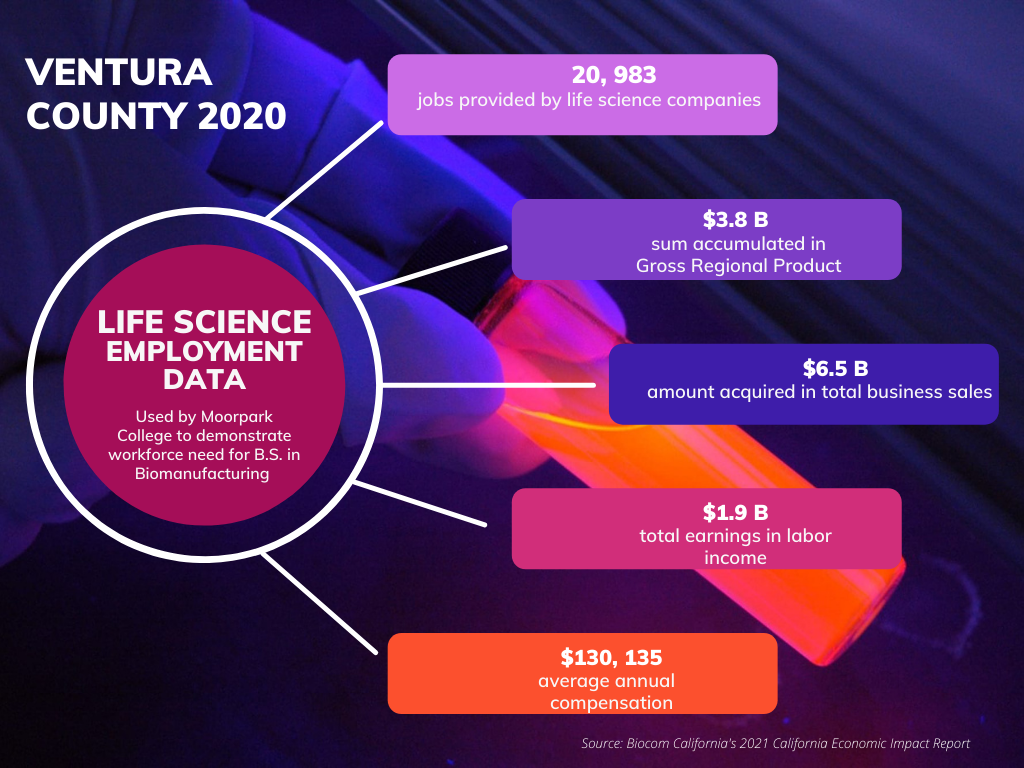
The abundance of jobs and income present in Ventura County’s life science industry, as substantiated by Biocom’s analysis, appear to justify Moorpark College’s biomanufacturing proposal. If more students are able to obtain bachelor’s degrees due to community colleges’ affordability aspect, the workforce needs of the local community will be better met.
Alongside outlining the workforce need for a bachelor’s degree in biomanufacturing, Karkare delineated the long history of biotechnology at Moorpark College. By doing so, Karkare hoped to demonstrate the college’s ability to offer a four-year degree in the field. Moorpark College has been offering an associate degree in biotechnology since 1998.
“We have a well-recognized biotech program and we have faculty and equipment and laboratories that are suited to offer a bachelor’s degree in biomanufacturing because we have gotten a lot of support from the local industry for that,” Karkare said.
Moreover, Karkare finds that the biology faculty members at Moorpark College are qualified to teach higher-level courses because of their immersion in the industry. Prior to teaching at Moorpark College, Karkare worked at Amgen, a biopharmaceutical company established in Thousand Oaks.
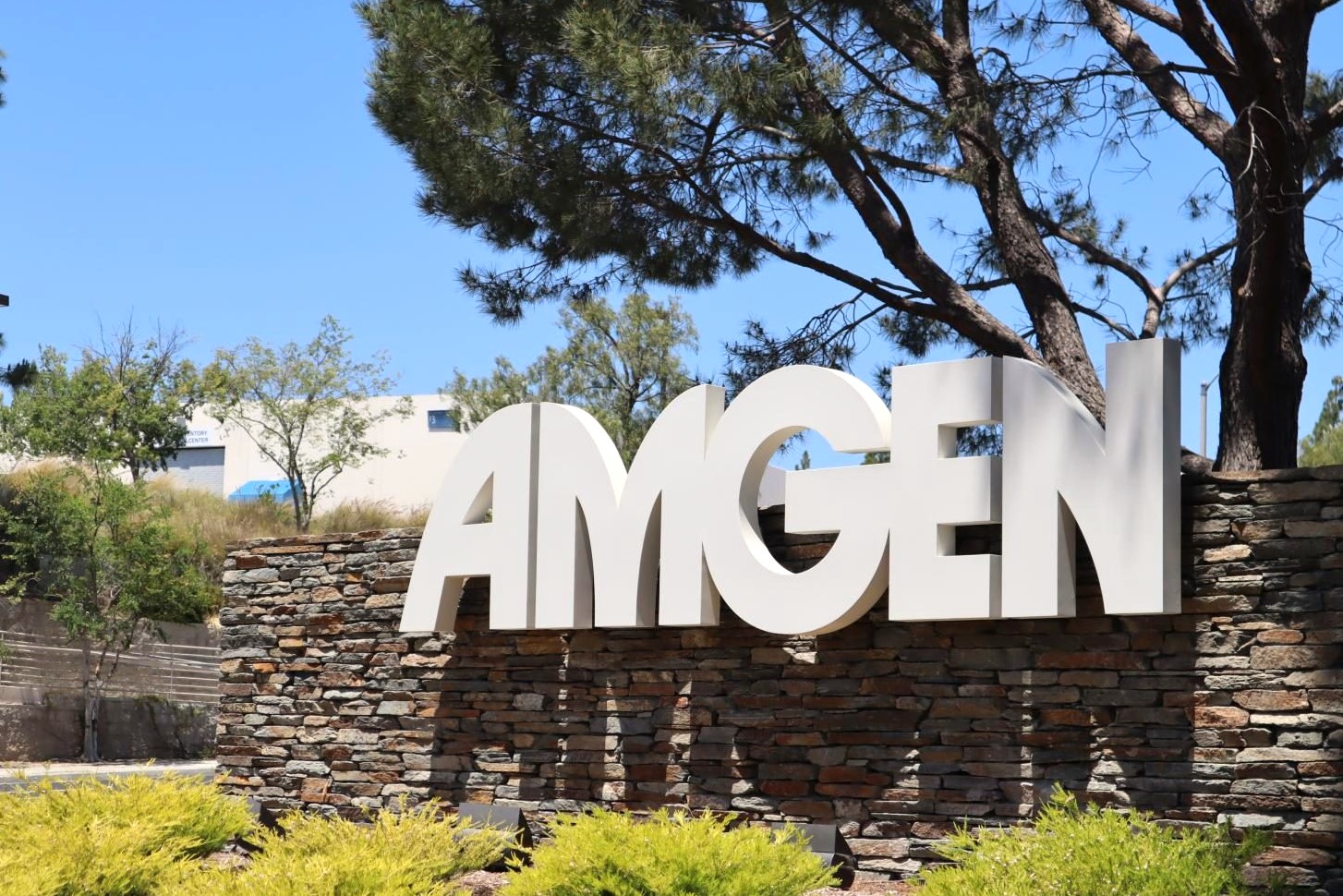
“Many of our adjunct faculty members also have connections to the local industry,” Karkare said. “They work in the local industry, so we could demonstrate that we have the capability of offering a bachelor’s degree. Both from the point of view of our educational backgrounds as well as our experience in biomanufacturing.”
The support received for the proposal
To further illustrate the need for the program, Karkare and other team members garnered letters of support from local business leaders and nearby schools offering biomanufacturing degrees.
AB-927 relays that another means of demonstrating workforce needs is to show that employers have a preference for candidates with bachelor’s degrees and are willing to pay such candidates more than candidates with an associate degree.
“So what I did was I contacted all of the, or most of the biotech companies in this area and asked them for letters of support that they actually will be hiring students from us because they need bachelor’s degrees in biomanufacturing,” Karkare said.
Karkare obtained such letters from local biotechnology companies such as Amgen, Curia and Thermo Fisher Scientific. These letters shared a common theme, the need for more qualified workers in an ever-expanding job market.
In addition to support from the local industry, Karkare gathered support from local colleges like California State University Northridge and California State University Channel Islands to demonstrate that they do not have a program that rivals Moorpark’s proposal–in accordance with AB-927’s non-duplication stipulation.
“We contacted CSUN and CSUCI, and they gave us letters saying that they don’t have anything similar and that they support our program and our offering,” Karkare said.
There are already two colleges in the state that offer bachelor’s degrees in biomanufacturing: Solano College and MiraCosta College.
Karkare attained letters of support from these colleges as well.
The next steps for Moorpark College
“I think for us at Moorpark College, we look at legislation like AB-927 as an opportunity,” Klein reflected.
The benefits of offering a bachelor’s degree at a community college are difficult to dismiss. Klein and Karkare expressed that a bachelor’s degree in biomanufacturing will make education for students in the field much more affordable and will grant them a direct pathway to securing a high-paying job in their local community.
“The biomanufacturing baccalaureate program will provide students with affordable degrees that qualify them for high wages in high demand jobs within our local area,” Klein said.
Klein asserted that Moorpark College intends to become a leader in applied education. Offering a bachelor’s degree in biomanufacturing will reinforce the college’s already well-established biotechnology program while also fulfilling the local industry’s workforce needs.
“This submission of the biomanufacturing baccalaureate proposal was just the next phase in Moorpark’s continued commitment of meeting and providing the skilled workforce that our local biotech industry needs,” Klein explained.
In the future, Moorpark College hopes to further its journey with AB-927 by offering a bachelor’s degree in an entirely different field as well.
“Our college is also planning on submitting a cyber security proposal,” Karkare affirmed.
In the meantime, students, faculty and industry officials will have to wait to hear what becomes of Moorpark College’s biomanufacturing proposal. Karkare and Klein remain optimistic and assured of the proposal’s acceptance.
“I work in education,” Klein said. “I’m always optimistic. We believe that this degree will provide strong growth opportunities for our students in our local community.”
*Update: On Jan. 23, 2023, the California Community College Board of Governors approved Moorpark College’s proposal to offer a bachelor’s degree in applied biomanufacturing. Students can begin the program in the fall 2024 semester.

